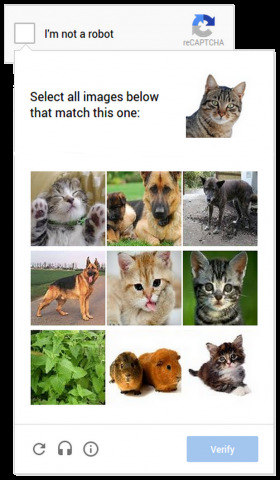Google Is Trying To Change CAPTCHA As We Know It
We've all been there, quietly setting up an account for a website or service, only to be met with the CAPTCHA. Everything is great, then some misaligned words with weird fonts and distortion take hold, leaving you craning your neck and questioning your eyesight. CAPTCHA is designed to thwart bots from creating fake accounts or sending spam messages, but for you and I, it's just a pain. Google is trying to stop CAPTCHA from ever frustrating us again, and is attempting to replace it with a more reasonable approach.
CAPTCHA might be a good tool, but it's not perfect. Google's solution, which they call "No CAPTCHA reCAPTCHA", isn't either. It is simpler, though, and just plain asks if you're a bot there to do harm, or just someone trying to buy ironic socks from your favorite online shop.
Via an API, Google's system can be implemented everywhere, and has several fallback features for success. After asking if you're a bot, the API them decides if it's happy with your answer. If not, you might be asked to input a CAPTCHA. So, No CAPTCHA is asking, and reCAPTCHA is, well, CAPTCHA.

The new system also makes a home on mobile, where Google shows off image recognition as the method for thwarting bots. After asking if you're there to spam people, you might be met with a picture of a cat, then asked to choose matching images from a grid to verify you're a human. The images on the grid aren't the same cat, but there are cats there. Human's understand cats are cats, and "match". Bots don't.
Google says the new system identifies things like time spent on a page and IP addresses, but offer up little beyond that. A bot likely has actions that can be identified pretty plainly, though. Things like time spent filling out forms and selecting that they're not a bot might clue the API to the fact that it isn't a bot, which would bring up a second-tier effort (reCAPTCHA).
It's definitely easier for us (you know, humans), but don't look for sweeping change just yet. The API isn't mandatory, and Google's announcement is peppered with notations that it's still currently experimental.
Source: Google
